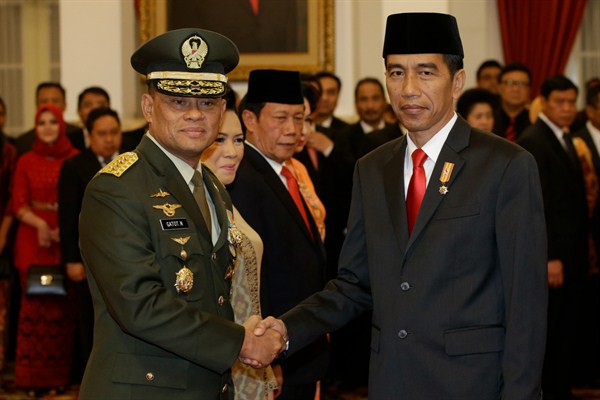Earlier this month, Indonesia’s military chief unilaterally suspended defense ties with Australia, forcing President Joko Widodo to quickly walk back the move and raising questions about the amount of power the military has. In an email interview, Fabio Scarpello, a postdoctoral researcher at Murdoch University in Australia, discusses civil-military relations in Indonesia.
WPR: What are the basic tenets of civil-military relations in Indonesia, and what historical legacies have shaped them?
Scarpello: Since its return to democracy in 1998, Indonesia has successfully implemented first-generation security sector reform and established a substantial, though imperfect, institutional framework that grants civilian control over the military. For example, the president has executive powers in security and defense decisions, supported by the coordinating minister for political affairs and security, the minister for defense and security, and the commander in chief of the Indonesian army. The president can also appoint and dismiss the Indonesian army chief upon approval from the House of Representatives, and the House of Representatives Commission for Foreign Affairs and Defense has the power to supervise, inquire and initiate motions on defense matters.

